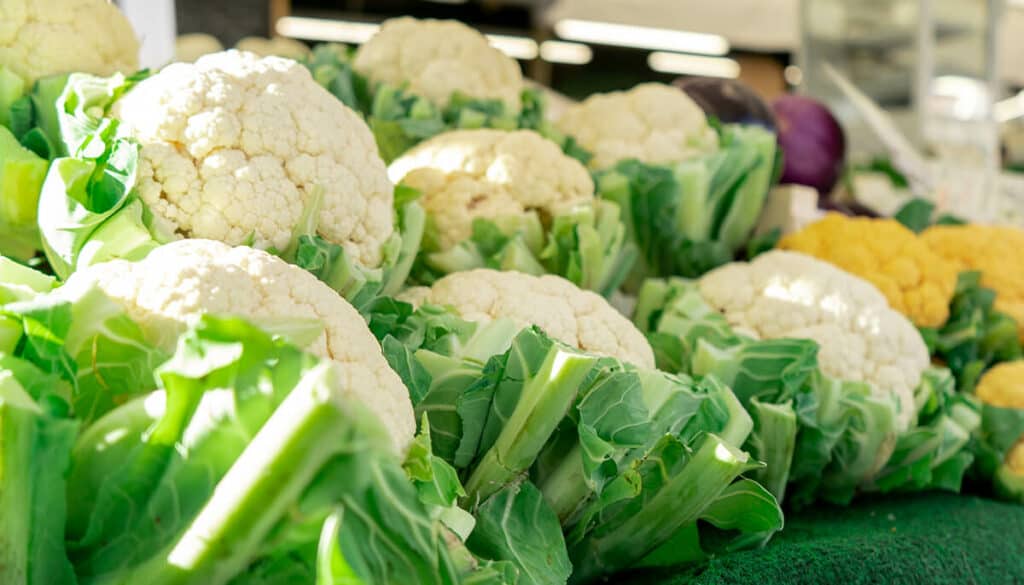
Cauliflower
When battling a kidney-related condition, it’s important to have assistance. This is because kidneys can only remove some toxins from the body, even in their healthiest state possible. That assistance can often come in the form of various healthy foods found all around us. Some choices, in this case, are not only obvious but beneficial beyond our comprehension. One such “assister” is at the helm of the cruciferous vegetable group. We’re talking about cauliflower, of course.
The thing that sets cauliflower apart is the presence of several plant-exclusive components in abundant quantities. A couple of those compounds are glucosinolates, indoles, and thiocyanates. When found in plants, these substances create a natural barrier against bacteria and pests. The human body is able to absorb them and achieve optimal absorption in the process. When ingested, glucosinolate reduces inflammation and relieves the kidneys of their strain.

Cauliflower can also promote a better digestive system. Due to the large amount of fiber within it, cauliflower promotes the improvement of intestinal flora in every way possible. It too has anti-clotting and antioxidant properties. A reduction in blood clots causes blood to circulate faster and blood vessels to gain elasticity. Such an improvement in the vascular part of the body directly affects the kidneys. The nephrons will get more oxygen and will battle toxic waste more valiantly.
There are a few Australian studies that claim that cauliflower prevents tumor cells from multiplying. Substances within it normalize the DNA matrix and destroy any ongoing tumor developments. Cauliflower is much more than a kidney health aid. It provides the body with sufficient materials to better all possible functions, regardless of location. It’s safe to say that cauliflower is an indispensable part of a healthy diet.
